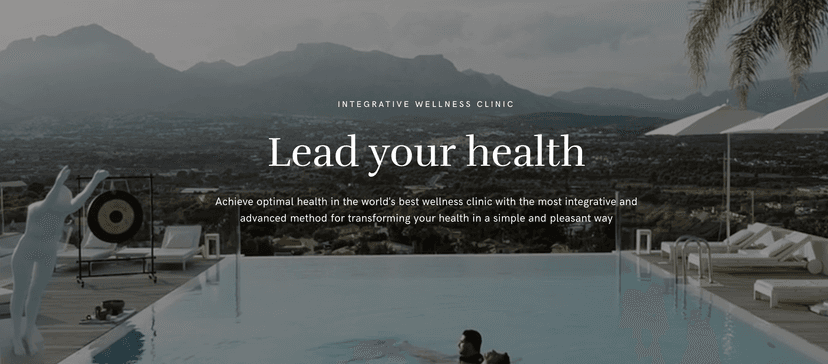Traveling can be a wonderful adventure, but it also comes with its own set of challenges for staying healthy. Whether you're on a road trip or flying to a new destination, it's important to keep your well-being in mind. This guide will provide you with simple and practical tips to stay healthy while on the move.
Key Takeaways
- Choose fresh, nutrient-dense foods to maintain a balanced diet while traveling.
- Boost your immune system with proper sleep, supplements, and stress management.
- Stay hydrated by drinking safe water and recognizing the signs of dehydration.
- Pack healthy snacks and avoid sugary treats to keep your energy levels stable.
- Incorporate physical activity into your travel plans to stay fit and energized.
The Basics of Healthy Eating While Traveling
Choosing Nutrient-Dense Foods
When you're on the go, it's crucial to pick foods that are packed with nutrients. Opt for fruits, vegetables, lean proteins, and whole grains. These foods provide the energy and nutrients your body needs to stay active and healthy. Avoid empty calories from sugary snacks and drinks.
Planning Balanced Meals
Planning your meals ahead of time can make a big difference. Try to include a mix of protein, carbohydrates, and fats in each meal. This balance helps keep your energy levels stable and prevents overeating. If you're eating out, look for menu items that offer a good mix of these nutrients.
Avoiding Junk Food
It's easy to reach for junk food when you're traveling, but it's important to resist the temptation. Junk food is often high in sugar, salt, and unhealthy fats, which can leave you feeling sluggish. Instead, pack healthy snacks like nuts, dried fruit, or yogurt to keep you satisfied between meals.
Staying mindful about your food choices while traveling can help you maintain your health and energy levels, making your trip more enjoyable.
Boosting Your Immune System for Travel
A strong immune system is key to staying healthy while traveling. Here are some tips to help you boost your immunity on the go.
Importance of Sleep
Getting enough rest is crucial for a strong immune system. Adequate sleep helps your body replenish immune cells, which fight off germs and illnesses. Aim for 7-9 hours of sleep each night to stay energized and healthy during your trip.
Role of Supplements
Travel can be tough on your immune system, so consider adding supplements to your routine. Talk to your doctor about the best options for you. Some helpful supplements include:
- Multivitamins
- Probiotics
- Vitamin C
- Vitamin D
- Zinc
These can help keep your immunity levels high even when you're away from home.
Stress Management Techniques
Managing stress is important for maintaining a strong immune system. Try these techniques to keep stress at bay:
- Practice mindfulness or meditation
- Take breaks and rest when needed
- Connect with nature
Keeping stress levels low can help your body stay strong and fight off illnesses more effectively.
Staying Hydrated on the Go
Safe Drinking Water Sources
When traveling, it's crucial to ensure your drinking water is safe. In some places, tap water may not be safe to drink. Always check local guidelines about water safety. If in doubt, opt for bottled water or use a portable water filter. Boiling water is another effective way to kill germs.
Hydration Tips for Flights
Flying can be particularly dehydrating due to the low humidity in airplane cabins. To stay hydrated:
- Drink water regularly throughout the flight.
- Avoid alcohol and caffeine, as they can dehydrate you.
- Bring an empty reusable water bottle and fill it after passing through security.
Recognizing Signs of Dehydration
It's important to recognize when you're dehydrated. Common signs include:
- Dry mouth and throat
- Dark yellow urine
- Feeling dizzy or lightheaded
- Fatigue
If you notice any of these symptoms, increase your water intake immediately. Staying hydrated helps keep your energy levels up and ensures you feel your best while traveling.
Healthy Snacking Tips for Travelers
Packing Nutrient-Dense Snacks
When you're on the move, it's important to pack snacks that are both tasty and good for you. Nutrient-dense snacks can keep you full and energized without ruining your diet. Think about bringing along nuts, dried fruits, or whole-grain crackers. These snacks are easy to carry and don't spoil quickly.
Finding Healthy Options on the Road
Finding healthy snacks while traveling can be a bit tricky, but it's doable. Look for grocery stores or local markets where you can buy fresh fruits and vegetables. Many convenience stores also offer healthier options like yogurt, cheese sticks, or pre-cut veggies. If you're eating out, choose dishes that are grilled or steamed instead of fried.
Avoiding Sugary Treats
Sugary snacks might be tempting, but they can lead to energy crashes and aren't good for your health. Instead of reaching for candy or soda, opt for snacks with natural sugars like fruits. If you need something sweet, try dark chocolate or a small portion of trail mix with dried fruit. This way, you can satisfy your sweet tooth without overloading on sugar.
Planning ahead for your snacks can make a big difference in how you feel during your travels. By choosing healthy options, you'll have more energy and stay in a better mood.
Maintaining Physical Activity While Traveling
Incorporating Exercise into Your Itinerary
Before you leave, look up ways to stay active at your destination. This could be outdoor activities like hiking or biking a scenic trail, or indoor exercises such as yoga poses, functional fitness routines, or quick bursts of high-intensity interval training (HIIT). Planning ahead ensures you have time for these activities.
Active Sightseeing Ideas
Active sightseeing is a fantastic way to explore while staying fit. Consider these options:
- Walking tours
- Biking around the city
- Hiking local trails
- Kayaking or paddleboarding
These activities not only keep you moving but also offer a deeper connection with the local culture.
Stretching and Deep Breathing Exercises
Don't forget to stretch and practice deep breathing exercises. These can be done anywhere, whether in your hotel room or at a scenic spot. Stretching helps to keep your muscles flexible and reduces the risk of injury, while deep breathing can help manage stress and improve overall well-being.
Staying active while traveling doesn't have to be hard. With a little planning, you can keep up with your fitness routine and enjoy your trip even more.
Managing Stress and Mental Well-being
Mindfulness Practices
Mindfulness can help you stay calm and focused while traveling. Simple practices like deep breathing and meditation can make a big difference. Try to set aside a few minutes each day to clear your mind and relax.
Taking Breaks and Rest
It's important to take regular breaks and get enough rest. Overloading your schedule can lead to burnout. Make sure to plan some downtime in your itinerary to recharge.
Connecting with Nature
Spending time in nature can greatly improve your mental well-being. Whether it's a walk in a park or a hike in the mountains, being outdoors can help reduce stress and boost your mood.
Remember, taking care of your mental health is just as important as looking after your physical health. Prioritize your well-being to make the most of your travels.
Preparing a Travel Health Kit
Essential Items to Pack
When getting ready for a trip, it's important to pack a travel health kit. This kit can help you handle minor health issues and emergencies. Here are some essential items to include:
- Adhesive bandages
- Antibiotic ointment
- Pain relievers like acetaminophen or ibuprofen
- Allergy medication
- Antacids for indigestion
- Medicine for diarrhea, like loperamide
- Sunscreen (SPF 30 or higher)
- Small scissors
- Tweezers
- Hand sanitizer
Using Hand Sanitizer and Disinfecting Wipes
Hand sanitizer and disinfecting wipes are must-haves for any traveler. They help keep your hands clean and reduce the risk of getting sick. Use hand sanitizer when soap and water aren't available, and wipe down surfaces like airplane trays and hotel remotes with disinfecting wipes.
First Aid Basics
Knowing some first aid basics can be very helpful. Learn how to clean and bandage a cut, treat minor burns, and recognize signs of more serious conditions. Having a small first aid manual in your kit can be a good idea. This way, you'll be prepared to handle minor injuries and know when to seek professional help.
A well-prepared travel health kit can make your trip safer and more enjoyable. Don't forget to customize it based on your destination and personal needs.
Conclusion
Traveling can be a thrilling adventure, but it's important to keep your health in mind. By planning ahead and making smart choices, you can enjoy your trip without compromising your well-being. Remember to pack healthy snacks, stay hydrated, and take breaks to rest and stretch. With these simple tips, you can have a fun and healthy journey. Safe travels!
Frequently Asked Questions
How can I eat healthy while traveling?
Eating healthy on the go can be easy if you plan ahead. Pack snacks like nuts, seeds, and dried fruit. Try to choose local dishes that are freshly cooked instead of reaching for junk food.
What can I do to boost my immune system before a trip?
Getting enough sleep, managing stress, and taking supplements can help keep your immune system strong. It's also important to eat a balanced diet and stay hydrated.
How do I stay hydrated during flights?
Bring an empty water bottle through security and fill it up before boarding. Drink water regularly during the flight and avoid too much caffeine or alcohol.
What are some healthy snack options for travelers?
Pack nutrient-dense snacks like nuts, seeds, dried fruit, and whole grain crackers. Look for healthy options at stores or markets along your journey.
How can I stay active while traveling?
Incorporate exercise into your itinerary by walking or biking to explore new places. You can also do stretching and deep breathing exercises in your hotel room.
What should I include in a travel health kit?
Pack essentials like hand sanitizer, disinfecting wipes, basic first aid items, and any personal medications. This will help you handle minor health issues on the go.
























